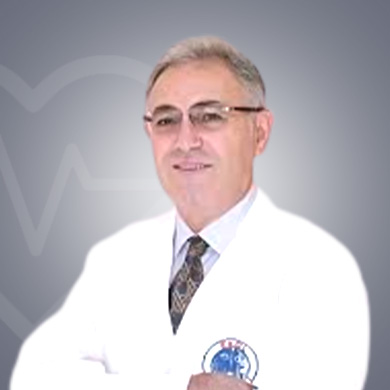
Interventional Cardiologist
Verified
Ekol Hospital , Izmir, Turkey
25 Years of experience
USD 90 USD 75 for video consultation
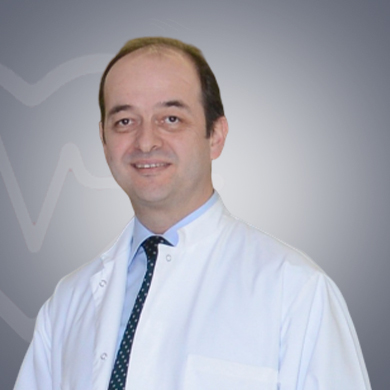
Interventional Cardiologist
Verified
Liv Hospital Ulus , Istanbul, Turkey
30 Years of experience
Speaks: English,Turkish
USD 264 USD 220 for video consultation
Dr. Enis Oguz is a specialized Interventional Cardiologist in Turkey. And one of the most sought-after medical specialists in Istanbul, Turkey. The doctor has over 30 Years of experience and is associated with Liv Hospital Ulus.
Association and Memberships Dr. Enis Oguz is part of:
Qualifications :
Hospital Address :
Ulus Mahallesi, Liv Hospital Group, Canan Sokak, Beikta/Istanbul, Turkey

Dr. Elif Ceylan Uyanik is a specialized Cardiac Surgeon in Turkey. And one of the most sought after medical specialists in Ankara, Turkey. The doctor has over 18 Years of experience and is associated with Medicana Bursa Hospital.
Qualifications :
Hospital Address :
Odunluk Mahallesi, Medicana BURSA HOSPITAL, Akp?nar Caddesi, Nilfer/Bursa, Turkey
What is the medical expertise of Dr Elif Ceylan Uyanik?
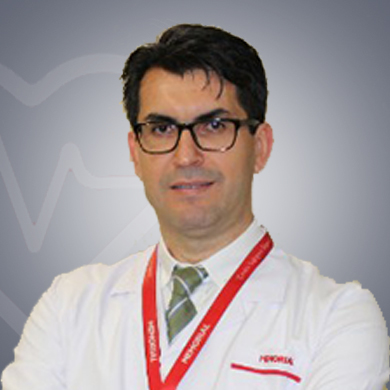
Dr. Isa Coskun is a specialized Cardiac Surgeon in Turkey. And one of the most sought after medical specialists in Istanbul, Turkey. The doctor has over 20 Years of experience and is associated with Memorial Antalya Hospital.
Association and Memberships Dr. Isa Coskun is part of:
Qualifications :
Hospital Address :
Zafer Mahallesi, Memorial Antalya Hospital, Y?ld?r?m Beyaz?t Caddesi, Kepez/Antalya, Turkey
What is the medical expertise of Dr Isa Coskun?
Using MediGence’s Telemedicine Platform, you can book a personalized video consultation with renowned doctors around the world

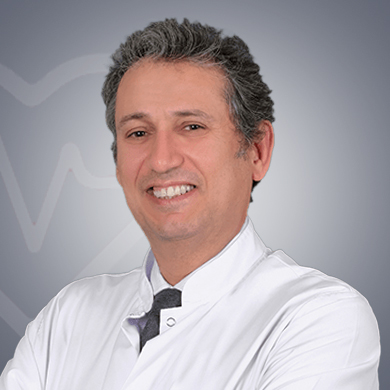
Dr. Riza Turkoz is a specialized Cardiac Surgeon in Turkey. And one of the most sought after medical specialists in Istanbul, Turkey. The doctor has over 32 Years of experience and is associated with Acibadem Bakirkoy Hospital.
Qualifications :
Hospital Address :
Zeytinlik Mahallesi, Acbadem Bakrk
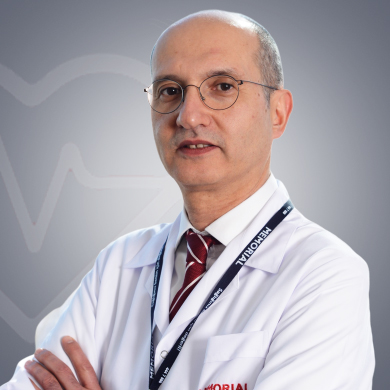
Dr. Cem Yorgancioglu is a specialized Cardiac Surgeon in Turkey. And one of the most sought after medical specialists in Ankara, Turkey. The doctor has over 27 Years of experience and is associated with Memorial Ankara Hospital.
Association and Memberships Dr. Cem Yorgancioglu is part of:
Certifications :
Qualifications :
Hospital Address :
Balgat Mah., Memorial Hospital Ankara, Mevlana Blv. & 1422. Sok., ankaya/Ankara, Turkey
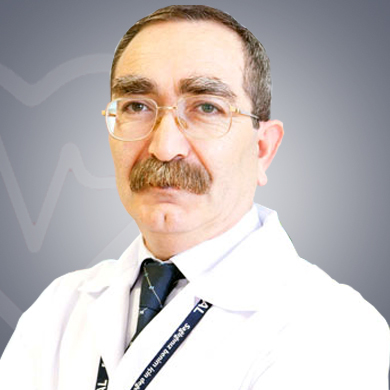
Dr. Naci Erciyes Yagan is a specialized Cardiac Surgeon in Turkey. And one of the most sought after medical specialists in Sisli, Turkey. The doctor has over 29 Years of experience and is associated with Memorial Sisli Hospital.
Association and Memberships Dr. Naci Erciyes Yagan is part of:
Qualifications :
Hospital Address :
Kaptan Paa Mh, Memorial ili Hospital, Halit Ziya T
What is the medical expertise of Dr Naci Erciyes Yagan
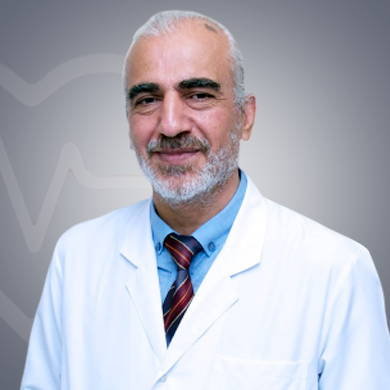
Dr. Ali Fedakar is a specialized Cardiac Surgeon in Turkey. And one of the most sought after medical specialists in Istanbul, Turkey. The doctor has over 29 Years of experience and is associated with Hisar Intercontinental Hospital.
Association and Memberships Dr. Ali Fedakar is part of:
Qualifications :
Hospital Address :
Saray Mah, Hisar Intercontinental Hospital, Site Yolu Cad, mraniye/Istanbul, Turkey
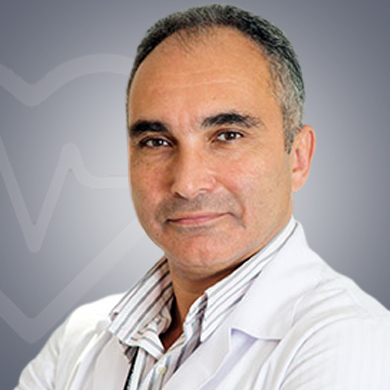
Dr. Mehmet Fikri Yapici is a specialized Cardiac Surgeon in Turkey. And one of the most sought after medical specialists in Atasehir, Turkey. The doctor has over 26 Years of experience and is associated with Memorial Atasehir Hospital.
Association and Memberships Dr. Mehmet Fikri Yapici is part of:
Qualifications :
Hospital Address :
K
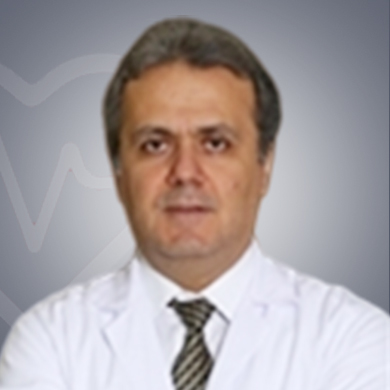
Dr. Kurtulus Ozdemir is a specialized Interventional Cardiologist in Turkey. And one of the most sought after medical specialists in Konya, Turkey. The doctor has over 20 Years of experience and is associated with Medicana Konya Hospital.
Qualifications :
Hospital Address :
Feritpa?a Mahallesi, Medicana Hospital in Konya, Grz Sokak, Seluklu/Konya, Turkey
What is the medical expertise of Dr Kurtulus Ozdemir?
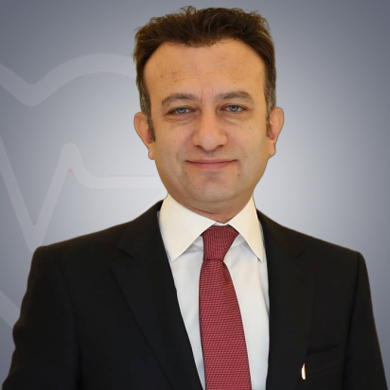
Dr. Timur Timurkaynak is a specialized Interventional Cardiologist in Turkey. And one of the most sought after medical specialists in Istanbul, Turkey. The doctor has over 22 Years of experience and is associated with Bayindir Healthcare Group.
Association and Memberships Dr. Timur Timurkaynak is part of:
Qualifications :
Hospital Address :
Kavakldere Mahallesi, Bayndr Hospital Kavakldere, Atat
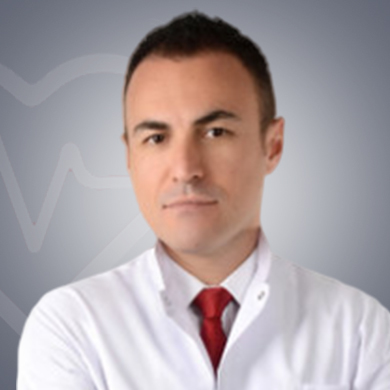
Dr. Mert Dumantepe is a specialized Cardiac Surgeon in Turkey. And one of the most sought after medical specialists in istanbul, Turkey. The doctor has over 17 Years of experience and is associated with Acibadem Altunizade Hospital.
Association and Memberships Dr. Mert Dumantepe is part of:
Qualifications :
Hospital Address :
Altunizade, Acbadem Hastanesi - Altunizade, Yurtcan Soka,
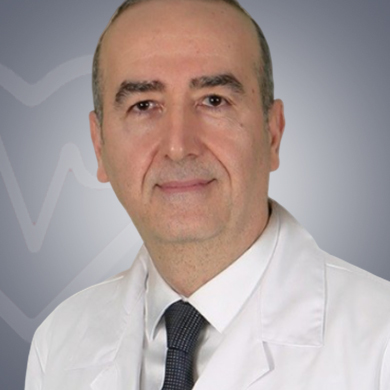
Dr. Ahmet Hakan Gercekoglu is a specialized Cardiac Surgeon in Turkey. And one of the most sought after medical specialists in istanbul, Turkey. The doctor has over 21 Years of experience and is associated with Medical Park Goztepe Hospital.
Qualifications :
Hospital Address :
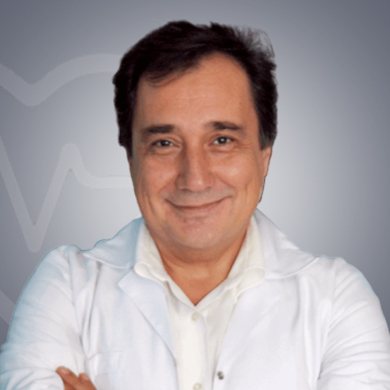
Istinye University Medical Park Gaziosmanpasa Hospital , Istanbul, Turkey
24 Years of experience
Speaks: English
Dr. Yavuz Besogul is a specialized Cardiac Surgeon in Turkey. And one of the most sought after medical specialists in istanbul, Turkey. The doctor has over 24 Years of experience and is associated with Istinye University Medical Park Gaziosmanpasa Hospital.
Qualifications :
Hospital Address :
Ak Veysel Mah, stinye
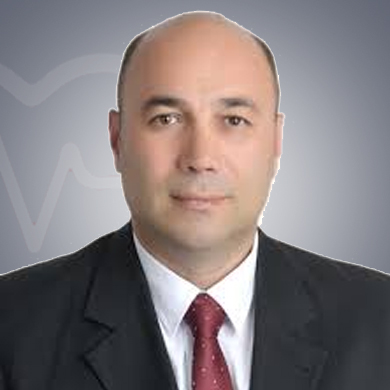
Dr. Mehmet Ozkan is a specialized Cardiac Surgeon in Turkey. And one of the most sought after medical specialists in Samsun, Turkey. The doctor has over 32 Years of experience and is associated with .
Association and Memberships Dr. Mehmet Ozkan is part of:
Qualifications :
Heart specialists, also called Cardiologists, are doctors specialized in the diagnosis, treatment and prevention of cardiovascular disorders like severe hypertension, elevated cholesterol level to heart rhythm problems. Cardiologists not just diagnoses and treats heart conditions but they also perform procedures that help diagnose as well as treat the heart conditions.
Cardiologist who specializes in performing the procedures (invasive and non-invasive) for treating the cardiac disorders and conditions are Cardiac Surgeons. Likewise, a specialized cardiologist may perform procedures to treat specific problems. For instance, interventional cardiologists place stents in clogged arteries, close small holes in the heart and place specialized devices in the heart. Pediatric cardiologists are the heart specialists who specialize in the diagnosis, treatment, medical management and prevention of heart disorders in children.
| Doctor | Associated Hospital |
|---|---|
| Dr. Deniz Sha Kucukaksu | Baskent University Istanbul Hospital, Istanbul |
| Dr. Armagan Altun | Baskent University Istanbul Hospital, Istanbul |
| Dr. Vedat Bakuy | Baskent University Istanbul Hospital, Istanbul |
| Dr. Tufan Paker | Baskent University Istanbul Hospital, Istanbul |
| Dr. Fulya Avci Demir | Antalya Anadolu Hastanesi, Antalya |
| Dr. Hakan Altay | Baskent University Istanbul Hospital, Istanbul |
| Dr. Cem Barcin | Guven Hospital, Ankara |
| Dr. Omer Kozan | Baskent University Istanbul Hospital, Istanbul |
Availing cardiac treatment is a major healthcare decision that is to be taken after serious consideration of many factors. It is thus that consulting with the right specialist can help you in the process towards better health. The option of doing this through a virtual medium has made it much easier for people to connect with the specialist of your choice, high caliber and excellent credentials. Let us have a look at the reasons to avail online consultation with Heart specialist in Turkey.
Please make sure to see your doctor using Telemedicine before you even board a flight
A cardiologist can be of three types depending on the procedure they follow for the treatment of cardiovascular disorders. These are:
A cardiovascular surgeon is specialized in the diseases, conditions and disorders of the heart using medical and surgical treatment procedures. Cardiac Surgeons work in conjunction with a multidisciplinary healthcare team while working on any case.
When should you visit a Cardiac Surgeon?
Your physician might recommend you to visit a cardiac surgeon if you experience any of the below symptoms on a frequent or regular basis:
What are the conditions/ diseases/ disorders a Cardiac Surgeon treats?
Procedures Performed by Cardiac Surgeons in Turkey
An interventional cardiologist is a cardiologist specialized in diagnosing and treating cardiovascular diseases, congenital (present at birth) and structural heart conditions through catheter based procedures, such as angioplasty and stenting.
If your cardiologist advises you to undergo an angiogram test to understand in more detail about the blockages in your arteries, then you will have to visit an interventional cardiologist for the same.
Interventional Cardiology is the branch of medicine within the subspecialty of cardiology that uses diagnostic techniques to evaluate the blood pressure and flow in the coronary arteries and chambers of the heart. It also covers the technical procedures and medications to treat abnormalities that impair the function of the cardiovascular system.
An interventional cardiology provides treatment options for various heart and vascular conditions, such as:
Procedures Performed by Interventional Cardiologist in Turkey
Pediatric cardiologists are specialists who diagnose, treat, rehabilitate and help in prevention of the cardiac (heart) conditions in infants and children. They work with children even since before their birth, through childhood and into adulthood.
Pediatric cardiology is the branch of medicine with the diagnosis, treatment and prevention of the heart conditions in babies (including unborn babies), children and teenagers. Pediatric cardiology as a field has greatly evolved in the past few years and has helped thousands of children to lead normal lives today.
Pediatric cardiologists work with specialists and other healthcare professionals as well to provide a holistic care your child needs. For instance, he might consult and/ or work with cardiac surgeons, nurses, dieticians, therapists, anaesthesiologists and or other healthcare professionals.
If your pediatrician has queries related to your child’s heart then he or she may be advised to visit a pediatric cardiologist. Since a pediatric cardiologist specializes in the diagnosing and treating heart problems in children. Children who need heart surgery are treated by pediatric heart surgeons to determine the best course of action and treatment.
Procedures Performed by Pediatric Cardiologist in Turkey
A pediatric cardiac surgeon is a doctor specialized in providing medical and surgical treatment for cardiac (heart) conditions and disorders in children. Pediatric cardiac surgeons are trained and experienced to address both congenital (existing at the time of birth) as well as acquired heart problems in newborns, children and adolescents.
When should you consider visiting a Pediatric Cardiac Surgeon?
Your might consider taking your child for a visit with a Pediatric Cardiac Surgeon if you notice any of the one or more of the below warning signs:
Procedures Performed by Pediatric Cardiac Surgeon in Turkey
Popular Heart Specialist in Top Countries are :
Top Speciality Doctors in Turkey:
List of Top Rated Hospitals where we can find Heart Specialist in Turkey are as followed:
Yes, we provide the list of Heart Specialist in Turkey in the following languages:
Here are some of the best rated heart specialist available for online consultation in Turkey:
Given below are some of the most sought after heart specialist in other countries:
Given below are some of the most popular hospitals in Turkey where heart specialist work:
A cardiologist or a heart specialist is a doctor who studies, diagnoses, and treats conditions of the cardiovascular system, i.e., the heart and blood vessels. Cardiologists are also qualified to treat heart attacks, arrhythmia, heart failure, heart valve disease, and high blood pressure.
To make a diagnosis, cardiologists may carry out physical exams, order tests like an electrocardiogram (EKG), blood tests, exercise stress tests, and interpret tests. They also prescribe medications and recommend lifestyle changes such as reducing stress levels, diet, exercise, and managing weight. Heart specialists or cardiologists can perform various procedures, such as inserting a cardiac catheter or implanting a pacemaker. Cardiologists may also teach at universities and conduct research within labs to develop new treatments.
Different types of heart doctors are:
To become a heart specialist or cardiologist, you need to go through a long period of medical education for acquiring board certification and licensure. After completing 10+2 with PCB, a candidate can continue your further studies towards becoming a cardiologist.
These doctors have special training in the field of cardiology. Cardiologists have to complete MBBS before focusing on heart-related specialties.
A cardiologist undergoes many years of medical training. Basic steps to become a cardiologist are:
Some common cardiac conditions treated by a heart specialist are:
Your cardiologist may order some medical tests to help find out what heart condition you are suffering from. Some of these tests are explained below.
Called a silent killer, heart diseases often occur with no symptoms until a major health event like a heart attack or a stroke occurs. This is the reason why it’s important to assess your risk factors now to recognize the early signs and seek preventative treatment. The presence of any of the below nine factors may the reason to seek the help of a heart specialist or cardiologist:
Your first appointment with a heart specialist will involve a check of your vitals, which is a non-invasive method to measure your heart’s electrical activity. Also, the clinical staff will note all details about your family and health history that a cardiologist or heart specialist should know.
Your cardiologist will thoroughly examine your heart health and might suggest some tests that can include urine or blood tests, an electrocardiogram (EKG), an PET, MRI, or CT scan, or a stress test. A heart specialist can diagnose any existing condition and determine future risks. They will also help create a routine that benefits your overall heart health and reduces your risk of developing heart conditions.
Below are somecommon procedures performed by a Heart Specialist:
Take online renowned doctors’ consultation with Telemedicine by MediGence, regardless of wherever you are.
How to access Telemedicine?
Exploring & Booking an appointment with the specialist in 3 simple steps-
Telemedicine enables you to-
Our Telemedicine offering makes things simple via its user-friendly interface.
Exploring & Booking an appointment with the specialist in 3 simple steps:
Experience online doctor consultations; Simple & Secured with MediGence…